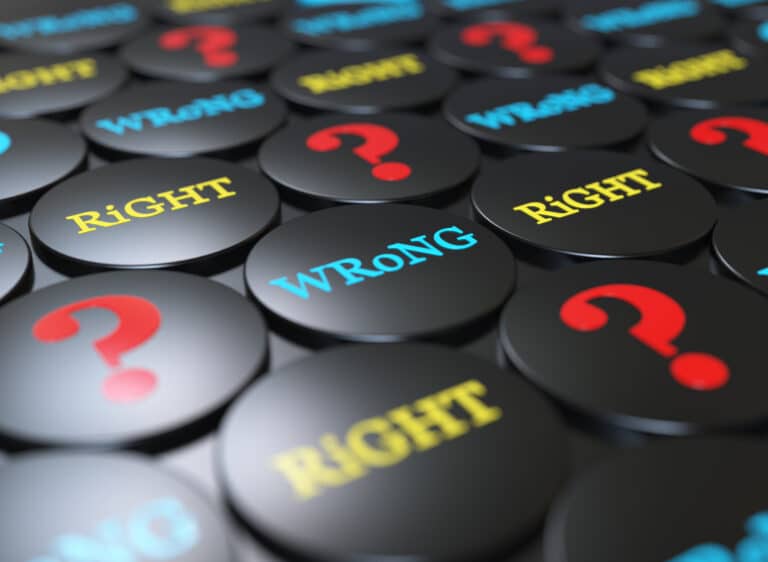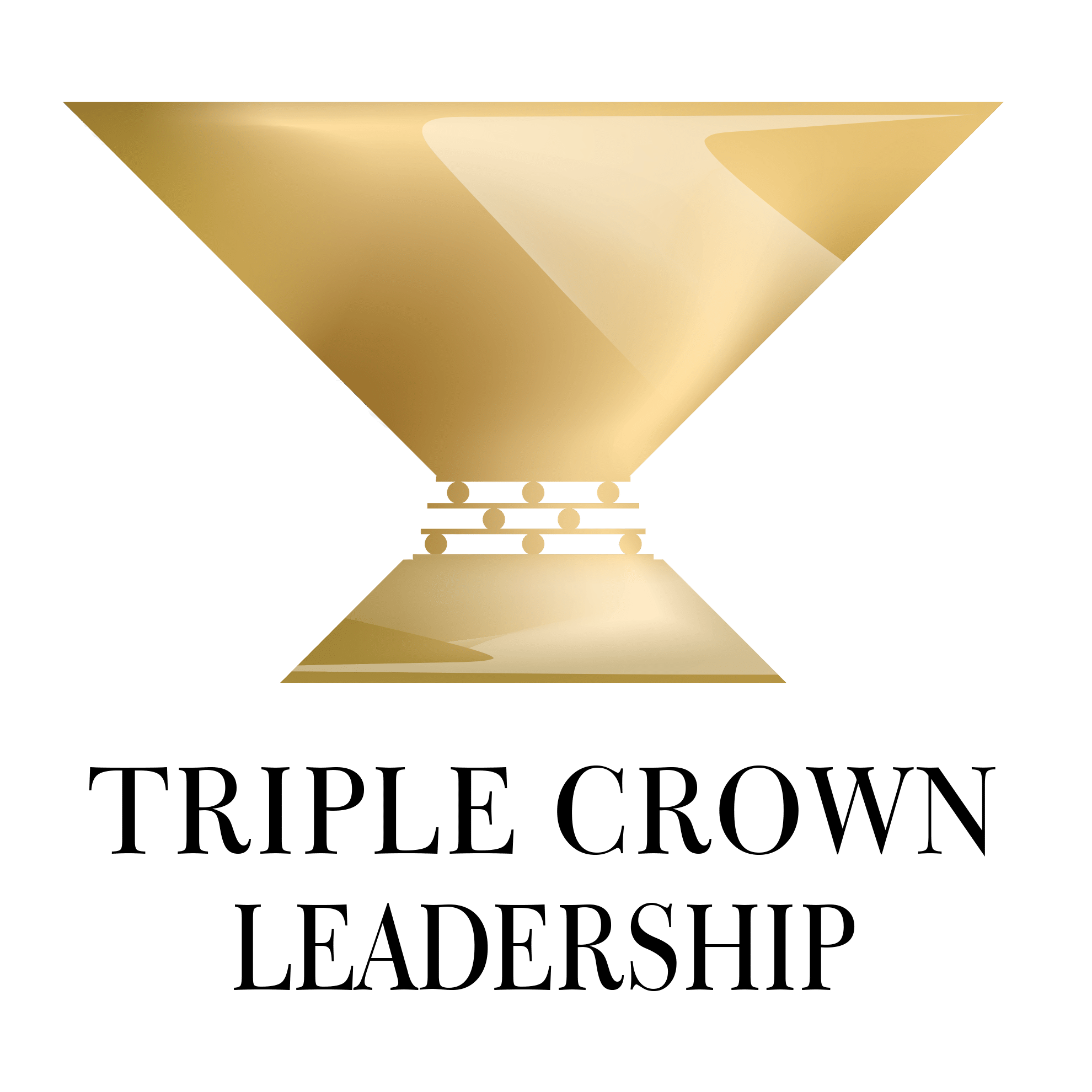When it comes to ethical challenges, we are all tested at some point. Leaders are tested most when they are under duress.
Many leaders are ill-equipped to navigate the ethical minefields awaiting them in the swirl of fast-changing competitive markets and new technologies.
Simple Tests for Ethical Decision-Making
Drawing insights from terrific books like Ethics (for the Real World), by Ronald Howard and Clinton Korver, and Courage: The Backbone of Leadership, by Gus Lee with Diane Elliott-Lee, here are some examples of simple tests that leaders can take before making ethical decisions:
Mirror Test
Imagine making the decision and then look at yourself in the mirror. How do you feel? What do you see in your eyes? Does it trigger alarm bells, violate your principles, or summon a guilty conscience?
Front Page Test
Imagine reading about the decision in the headlines, with your name and photo prominently displayed. How would you look and feel, and what effect would it have on your reputation, relationships, and business prospects?
Consequences Test
The consequences of unethical decisions can be severe, so it is wise to consider them in advance. Think not only of the potential monetary costs associated with certain causes of action but also the reputational costs (brand equity), relationship costs, and psychological costs (the burden of regret).
Reciprocity Test
Imagine being on the receiving end of your possible action: how would you feel if the shoe were on the other foot (and you were getting kicked)? Would you be violating the golden rule?
Universality Test
Drawing on the thinking of the great German philosopher Immanuel Kant, imagine if your course of action were to become standard practice for all people in all times (a universal maxim). Would that be a good and just outcome?

Leadership Derailers Assessment
Take this assessment to identify what’s inhibiting your leadership effectiveness. It will help you develop self-awareness and identify ways to improve your leadership.
Role Model Test
Given the choice before you, what would your role model (or someone you admire, such as a parent, sibling, friend, mentor, or coach) say or do? Have you asked him or her?
Loved One Test
This can work in two ways: First, similar to the role model test above, what would your mother or father—or grandmother or grandfather—say or do about this? Second, imagine your son or daughter (or other precious loved one, such as a spouse, close relative, or best friend) in this situation and think through what you would want to have happen.
Advisory Group Test
Do you have an advisory group, a men’s or women’s group, a “personal board of directors,” or other group of people you can run this by to gather input and explore options? If not, why not start one? Or reach out to people you trust in this instance. Often, they have valuable experience or insights.
Sanctuary Test
Finally, have you given it time for reflection? Have you slept on it? Have you prayed about it, or meditated, or otherwise found sanctuary to let your inner voice emerge?

Personal Values Exercise
Complete this exercise to identify your personal values. It will help you develop self-awareness, including clarity about what’s most important to you in life and work, and serve as a safe harbor for you to return to when things are tough.
When leaders face intense pressures or ethical dilemmas, pausing to take one or more simple tests can make an enormous difference—especially if this ethical pressure-testing also includes:
- clarifying the ethical issue and its root causes
- creatively exploring possible alternatives
- evaluating the choices with input from trusted advisors and the screen of your personal values and core beliefs
In the working world, we have robust processes for strategizing, financial modeling, onboarding, and more. It’s time we beefed up our ethical decision-making muscles too.
Reflection Questions:
- What processes do you use to make ethical decisions?
- Who do you turn to for guidance on tough issues?
Tools for You
- Leadership Derailers Assessment to help you identify what’s inhibiting your leadership effectiveness
- Personal Values Exercise to help you determine and clarify what’s most important to you
- Alignment Scorecard to help you assess your organization’s level of alignment
Related Articles
- “The Importance of Credibility in Leadership”
- “The Importance of Integrity in Leadership”
- “The Importance of Trust in Leadership”
- “Ethical Leadership: Our Gamechanger”
- “Why Are We Talking About Ethics?”
- “Are You Strong Enough to Be a ‘Voice of One’?”
- “The Ethical Challenges Faced by Leaders”
- “Is Your Organization Falling Short on Values?“
- “Are You Working for an Unethical Organization?“
- “What to Do If You Work for an Unethical Organization?“
- “High Performance Begins with Shared Values“

Triple Crown Leadership Newsletter
Join our community. Sign up now and get our monthly inspirations (new articles, announcements, opportunities, resources, and more). Welcome!
+++++++++++++++++++++++
Gregg Vanourek and Bob Vanourek are leadership practitioners, teachers, and award-winning authors (and son and father). They are co-authors of Triple Crown Leadership: Building Excellent, Ethical, and Enduring Organizations, a winner of the International Book Awards. Check out their Leadership Derailers Assessment or get their monthly newsletter. If you found value in this, please forward it to a friend. Every little bit helps!


